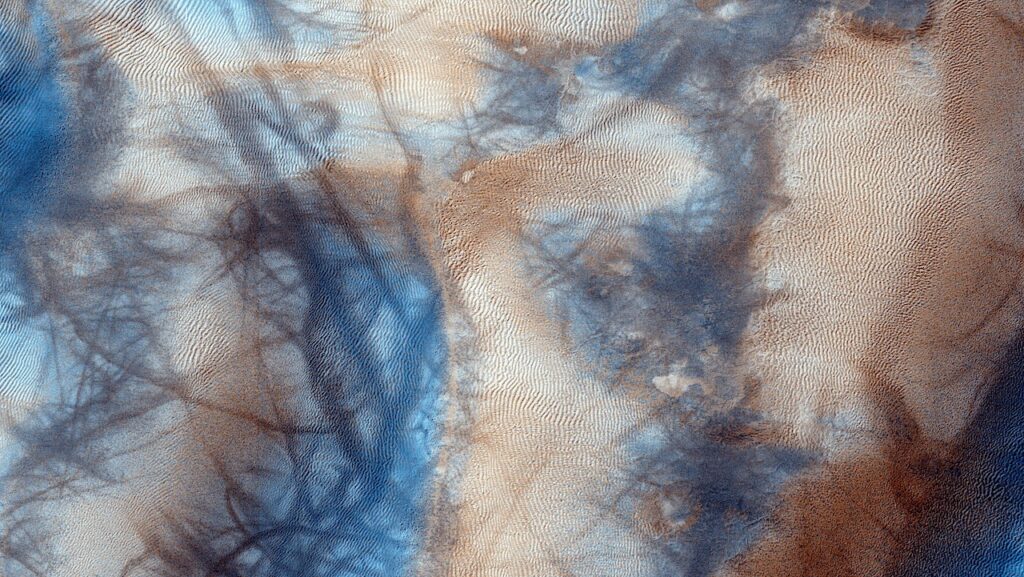Evidence For Geologically Recent Explosive Volcanism In Elysium Planitia, Mars

Volcanic activity on Mars peaked during the Noachian and Hesperian periods but has continued since then in isolated locales. Elysium Planitia hosts numerous young, fissure-fed flood lavas with ages ranging from approximately 500 to 2.5 million years (Ma).
We present evidence for what may be the youngest volcanic deposit yet documented on Mars: a low albedo, high thermal inertia, high-calcium pyroxene-rich deposit distributed symmetrically around a segment of the Cerberus Fossae fissure system in Elysium Planitia. This deposit is similar to features interpreted as pyroclastic deposits on the Moon and Mercury. However, unlike previously documented lava flows in Elysium Planitia, this feature is morphologically consistent with a fissure-fed pyroclastic deposit, mantling the surrounding lava flows with a thickness on the order of tens of cm over most of the deposit and a volume of 1.1-2.8E7 cubic meters.
Thickness and volume estimates are consistent with tephra fall deposits on Earth. Stratigraphic relationships indicate a relative age younger than the surrounding volcanic plains and the Zunil impact crater (~0.1-1 Ma), with crater counting suggesting an absolute model age of 53 to 210 ka. This young age implies that if this deposit is of volcanic origin then the Cerberus Fossae region may not be extinct and Mars may still be volcanically active today.
This interpretation is consistent with the identification of seismicity in this region by the Interior Exploration using Seismic Investigations, Geodesy, and Heat Transport (InSight) lander, and has additional implications for astrobiology and the source of transient atmospheric methane.
David G. Horvath, Pranabendu Moitra, Christopher W. Hamilton, Robert A. Craddock, Jeffrey C. Andrews-Hanna
Comments: 41 pages, 11 figures
Subjects: Earth and Planetary Astrophysics (astro-ph.EP)
Cite as: arXiv:2011.05956 [astro-ph.EP] (or arXiv:2011.05956v1 [astro-ph.EP] for this version)
Submission history
From: David Horvath
[v1] Wed, 11 Nov 2020 18:22:25 UTC (3,369 KB)
https://arxiv.org/abs/2011.05956
Astrobiology








